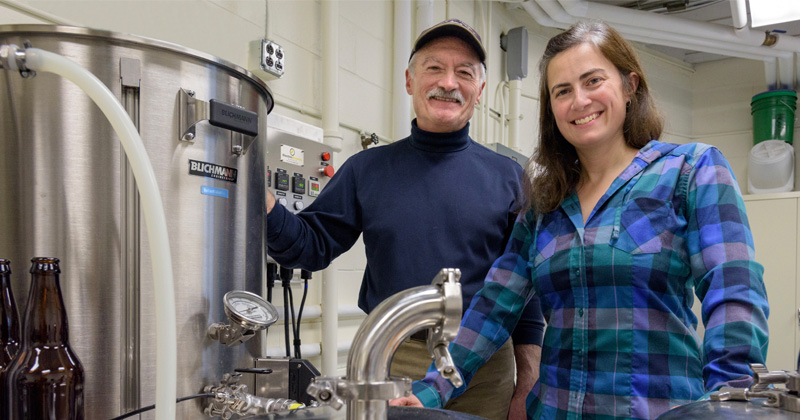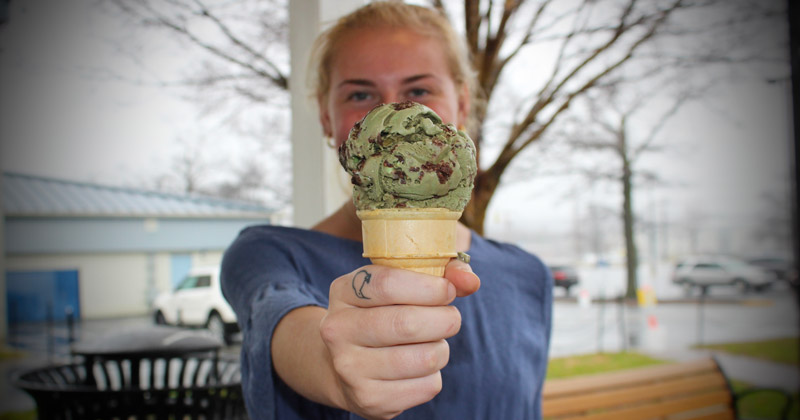
Contract Courses
Descriptions of Contract Courses
ANFS 464 is a course for students who which to receive credit for a supervised, faculty-monitored, career-related experience in one or more aspects of the animal science or food science industries on or off campus. For example students that want experience working on our University farm facilities or on private farms register for ANFS 464 . Students may obtain a maximum of 3 credits per internship which requires 120 hours of internship work. A student may register for an internship during any semester. ANFS 464 meets the DLE requirement for graduation. ANFS 464 is a pass/fail course.
ANFS X66 is a course for students who receive credit for independent, faculty-monitored activities in the fields of animal science or food science. Students may obtain a maximum of 3 credits per semester which requires 120 hours of work. A student may register for independent study during any semester. These activities can include library research projects or more informal, small research projects which are designed specifically for students (which means they are probably not part of larger, substantial or funded project; or the number of animals and/or data collected are not substantial enough for real statistical analysis; there is no statistical experimental design; focus on data and lab techniques is usually not as strong as in ANFS 468.) ANFS X66 may also be used to teach a course under special circumstances for example to a student that cannot take the course during a regular offering because of a scheduling conflict. ANFS X66 does not meet the DLE requirement for graduation No more than 5 credits of X66 may be counted towards the major. ANFS X66 is a letter-graded course.
ANFS 468 is a course for students who want to receive credit for a supervised, faculty-monitored, experience in research in the fields of animal science or food science. Students may obtain a maximum of 3 credits per semester which requires 120 hours of research (40h for 1 credit). A maximum of 3 credits in ANSC 468 may count towards the major. A student may register for research during any semester. While these students are typically part of a larger research program, beginning students usually do not have their own projects and will assist in on -going research projects while learning techniques. Advanced students may be assigned to specific research projects, which may be their own. ANFS 468 meets the DLE requirement for graduation. ANFS 468 is a letter -graded course.
There are contract forms for each of these courses which must be reviewed and signed by the Department Chair or his/her designee.
-

Celebrating excellence in agriculture and natural resources
May 16, 2024 | Written by Dante LaPentaAs the spring semester headed into its final stretch run, the University of Delaware College of Agriculture and Natural Resources gathered together to honor a few deserving faculty and staff. At the college’s Celebrating Excellence event, the 2024 stars of the show were Sue Barton, Larry Armstrong, and Kent Messer. -
A sweet way to apply food science
May 14, 2024 | Written by Nya Wynn | Photos courtesy of Jane FarnhamJane Farnham found that her love for experimenting in the kitchen with different recipes could lead to a career in food science. Through a summer internship with Turkey Hill, Farnham played a pivotal role in creating a new ice cream flavor. The experience solidified her interest in research and development, allowing her to blend her passion for scientific knowledge and culinary creativity together. -
Advancing knowledge on wooden breast syndrome
May 08, 2024 | Written by Katie Peikes | Photo by Michele WalfredUniversity of Delaware researchers in the College of Agriculture and Natural Resources have made a new discovery in their work on wooden breast syndrome in chickens. The UD team found white blood cells filled with fat surrounding broiler chickens’ veins and showing signs of swelling are key contributing factors to this muscle degeneration disease in these birds that can ultimately affect their meat quality.


